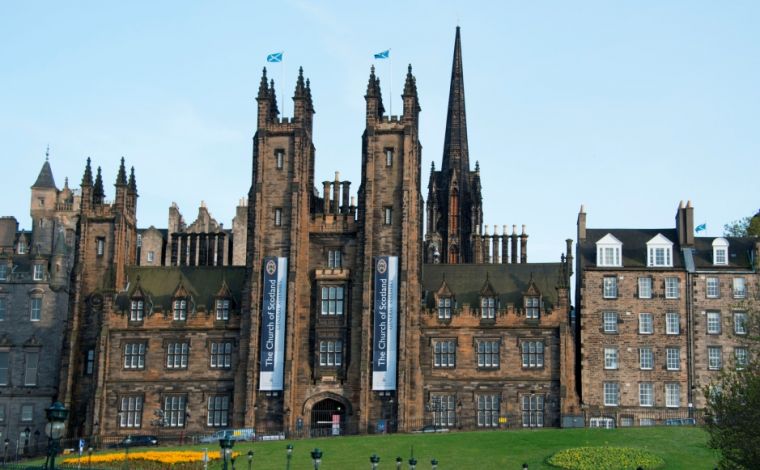Situation is 'urgent and critical' for Church of Scotland amid falling membership and financial challenges

The Church of Scotland must "invest seriously in new ventures, pioneer ministry and Church planting" if it is to rebound from declining membership and serious financial challenges that have only been exacerbated by the pandemic.
That was the stark warning from convener, the Very Rev Dr John Chalmers, to the Church of Scotland General Assembly on Saturday.
"The situation we face is urgent and critical, and requires all of us to get on board with the changes that are being asked of us in every part of our Church life," he told the hybrid gathering that is taking place both online and in-person in Edinburgh.
A report presented by Dr Chalmers to the General Assembly revealed a staggering 34% drop in church membership between 2011 and 2021.
According to the Assembly Trustees report, membership currently stands at 280,000 - a fall of 4.6% on 2020 figures - "with no indication of this trend reversing from 2021 congregational data".
"The statistics presented as part of our report do not lie. In my lifetime, we've gone from a Church of 1.3 million members to fewer than 300,000," said Dr Chalmers.
"Our contact with children and our reach to Millennials and Generation Z are marginal.
"However, from the contact we do have, we know that while they agree with many of our aims, the present shape of church and the concept of membership itself means very little to them. These missing generations are our children and our children's children."
The Church's financial state has also suffered, with congregational income decreasing by 15% - £12.4m - between 2019 and 2020.
"Congregational income has not kept up with inflation even during the years when inflation was at very low levels," the report states.
"Church members and supporters will now be adversely affected by the increasing cost of living, putting pressure on their ability to maintain their giving at a time when church income needs to increase just to keep pace with rising costs."
The budgeted deficit for 2023 is £8.717 million, but in his address to General Assembly, Dr Chalmers warned of "extraordinary financial pressures" and predicted annual deficits of £7.5m per year over the next five years.
"A Church which has shrunk by 30% in the last ten years and which is painfully involved in reducing the number of buildings and ministries it requires, must acknowledge that proportionate cuts and savings have to be made across the board," he said.
"However, no one should think that this is cutting for the sake of saving as such. It is pruning in order to grow.
"The task is and remains redesigning the architecture of the whole system in order to build a Church of Scotland which is relevant and fit for purpose.
"There is no other reason for pulling all these levers of change at the same time and there is no other way of reforming our life than taking these long overdue steps which we pray will lead to renewal."
Despite the pressures, the General Assembly committed to the establishment of a new Seeds for Growth Fund.
The fund was paused during the pandemic but is now being launched to invest £20m to £25m over the next seven years on new church plants and church growth projects.
Dr Chalmers said: "If the Millennials and those in Generation Z are not going to embrace Church as it is now – then what kind of Christian community is going to be accessible, relevant and real for them?
"We believe that the answer lies in patterns of Church life that are still to be fully explored and developed."
The debate later turned to the financial pressure that the cost of living crisis is putting on parish ministers, with one saying that he had already gone without heating in his manse last winter and was filled with "fear and anxiety" thinking about next winter.
The General Assembly heard how worry about the cost of living and maintaining "ill-equipped and expensive to run" Victorian manses were "overtaking their ability to minister" and even causing some to think hard about whether they could continue as ministers.
Following the debate, Commissioners voted 227 to 122 in favour of a new scheme to support parish ministers struggling to pay their manse energy bills.











